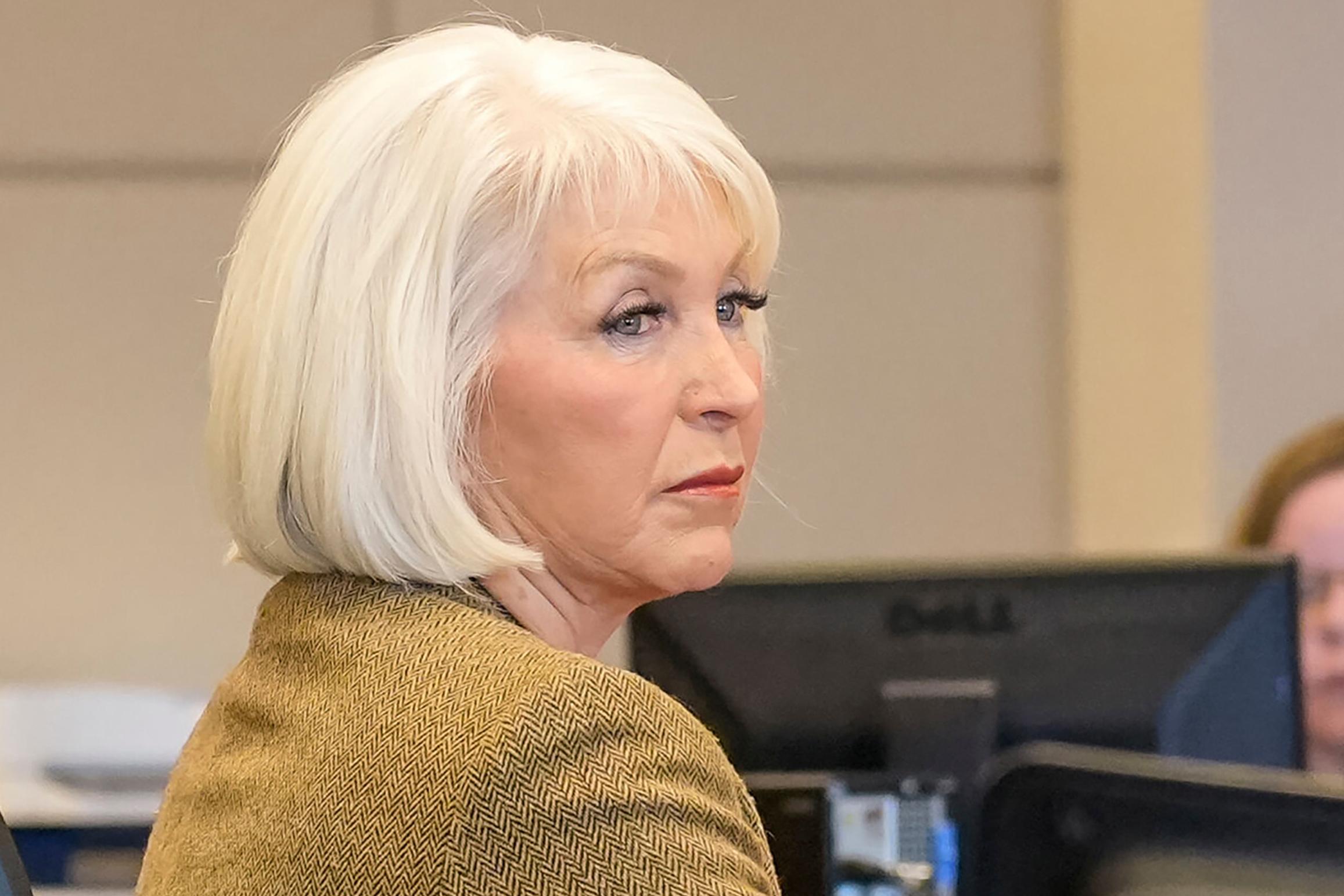
At this point a decade ago, Andrew Romanoff believed he was within striking distance of winning the U.S. Senate primary.
Michael Bennet was running to hold the seat he’d been appointed to the year before, and Romanoff as the dark-horse challenger had drawn close in the polls. Powerful Democrats saw him as a one-man threat to their plans for Colorado.
Today, Romanoff has battled his way back to a similar position. Once again, he has run a relentless campaign against his party’s national leadership, arguing that the “unholy” influence of money has corrupted their efforts on climate change and health care. Just like in 2010, Romanoff has debuted a harshly critical ad against his opponent in the final stretch, and he once more finds himself facing off against an alliance of influential politicians.
He lost last time by about eight percentage points. This time, the candidate sees a different electorate, one that is more ready to side with his reform message.
“I feel like the state is in a different place and the country’s in a different place [compared to] even a couple years ago. The climate crisis is getting worse. The pandemic has exposed the danger of leaving a quarter of the nation uninsured or under-insured,” he said in an interview on Sunday. “I was making this case 10 years ago.”
Romanoff's campaign may hinge on the question of whether the young, diverse and progressive voters reshaping Colorado’s Democratic politics show up for a 53-year-old white guy with a long history in state politics, including compromises that still rankle for some on the left.
The Colorado race is one of the Democrats’ best chances to potentially flip the Senate. National Democrats lined up behind former Gov. John Hickenlooper early in the race, helping him rake in millions of dollars. The Senate Majority PAC reported $1 million in spending to support Hickenlooper last week, while a dark-money group has unleashed a late surge of negative advertising against Romanoff.
“The case I made in 2010, and now in 2020, is, ‘Are you ready to stand up to your own party when your conscience demands it?’” Romanoff said.
Colorado might seem like a strong place to make that argument. This is a state that gave Bernie Sanders the most presidential delegates in 2016 and 2020. And Hickenlooper is perhaps the perfect foil for Romanoff’s insurgent campaign: a middle-of-the-road pro-business Democrat whose goofy charm has been strained recently by an ethics complaint and a subpoena that he defied.
Hickenlooper has opposed the Green New Deal and Medicare for All, saying that they go too far for American voters. He long ago made progressive enemies with his refusal to stand in the way of hydraulic fracturing and other fossil fuel extraction in the state.
“It seems that Hickenlooper doesn’t really have an idea of what the pulse of Colorado is, despite being governor for two terms. He’s running against Medicare for All, against a Green New Deal, in a state that voted for Bernie Sanders twice,” said Seina Soufiani, a 26-year-old engineer who supports Romanoff.
However, Hickenlooper is betting that the larger block of Democratic voters will pick his “pragmatic” approach over the more progressive policies Romanoff is pushing for.
“Great transformations in American history are generally done by giving Americans choices, not forcing them to accept a different solution than what they, what they're accustomed to,” Hickenlooper told CPR’s Colorado Matters.
Romanoff’s lacerating wit and unrelenting political style has won him supporters throughout the state.
Indeed, he dominated the caucus process, winning the support of 54 percent of delegates in the party meetings. Hickenlooper took 30 percent, but used a different route, petition signatures, to qualify for the ballot
Romanoff’s campaign lists hundreds of state and local elected officials’ endorsements, a grassroots network that he started building as the state’s Speaker of the House in the 2000s when he helped Democrats build a political machine that still dominates state politics today. He also collected allies during a 2014 run against Republican Rep. Mike Coffman, and during his four years as the president and CEO of Mental Health Colorado.
The candidate has caught some momentum, too, from the left wing that Bernie Sanders rebuilt. Romanoff was endorsed by the climate activism group Sunrise Movement and Our Revolution, a spinoff of Sanders’ campaign. He’s also endorsed by The Progressive Change Campaign Committee and the Colorado Latino Forum.
But Romanoff hasn’t caught fire the way insurgent progressive candidates have in other states. In Kentucky’s Democratic Senate primary, state Rep. Charles Booker has collected millions in donations after becoming a prominent voice at protests.
And Romanoff isn’t among the crop of Senate and House candidates to win endorsements from Bernie Sanders or Elizabeth Warren. Sanders has stayed out of this particular primary, and Warren recently endorsed Hickenlooper instead.
“If you’re going to pull off a primary win like this against a really established political figure, you need some of that national backing,” said Mansur Gidfar, a political consultant who has worked with progressive candidates in city and state elections.
Romanoff says the national endorsements weren’t a focus.
“I’m proud of the coalition we’ve built here in Colorado,” he said. But he acknowledged some challenges in this unusual cycle. “Most of the local media have been otherwise occupied … the presidential race, the impeachment saga, now the pandemic. So, it’s been a challenge to break through.”
With his physical campaign cut short, Romanoff’s instead turned to virtual “town halls,” playing host to a few thousand listeners for an hour at a time, delving into policy questions along with supporters like Denver Public Schools board member Tay Anderson and Rosemary Lytle, president for the NAACP’s regional conference.
“I appreciate your work. I appreciate your friendship over all these years,” Lytle said after a half-hour discussion on Juneteenth. “Thank you for always being supportive of issues that relate to civil rights and social justice.”
The insurgent campaign still has a ways to go.
An internal poll conducted for the campaign by Myers Research showed Romanoff trailing Hickenlooper by 12 percentage points — a significant gap, but a “massive” improvement for Romanoff, the pollsters said.
A survey conducted for 9News and ColoradoPolitics.com found a much wider spread, with 58 percent of Democratic voters saying they support Hickenlooper in the primary, compared to 28 percent for Romanoff. Fourteen percent were still undecided.
Still, among Romanoff's Colorado network, there’s optimism and a sense that they can pull off an upset.
“I believe that I can get the policy from Romanoff that I want,” said Ean Tafoya, a political activist who also serves as co-chair of the Colorado Latino Forum. “He’s listened to me, he’s listened to people in my community. He does the work.”
Tania Van Pelt, an activist with Indivisible Denver, said that a Romanoff victory would build on progressives’ wins in the statehouse, school board and city elections.
“For once, reality is a little better (than expectations),” she said of the race so far. “It’s interesting. I feel that a lot of us, we’re not resigned, because we’ve had some victories. I think we were a little more empowered and hopeful.”
Even as he’s courting the progressive wing of the party, Romanoff is still trying to heal old wounds.
In 2006, when he was Speaker of the House, he compromised with Republicans to pass a show-me-your-papers-style law that was meant to ensure undocumented immigrants couldn’t access certain public benefits.
It was an attempt to appease anti-immigrant sentiment that was burning red-hot across parts of the country before Colorado voters had a chance to institute something even more draconian at the ballot box. The policy largely mirrored existing federal law, but it also ensured that the state couldn’t offer in-state tuition to undocumented immigrants. It was later repealed in 2013.
“He was seen as a pretty progressive Democrat, relatively speaking, but personally I was really angry about the anti-immigration bill,” said Jessica Zender, a former statehouse staffer, now a coordinator with the liberal group Indivisible Denver. “I got a bad taste in my mouth.”
Romanoff disowned the bill during his 2014 run and again in 2019, saying it had been “pointless” to negotiate with immigration hardliners who had “no genuine interest in progress.” He now says it was “a grave mistake, one that will haunt me for the rest of my life.”
Joe Salazar, a former state representative and an influential figure in Colorado’s left has accepted the apology. He’s now a Romanoff supporter, despite their earlier clashes.
“I can only hope that a public official would grow or learn from their mistakes, and Romanoff certainly has,” he said. “I’ll tell you that John Hickenlooper has not.”
Now, in the final days of the race, a dark-money group supporting Hickenlooper is using the immigration bill in a $750,000 ad campaign against Romanoff, as The Colorado Sun reported.
The issue has partially cost Romanoff the support of some rising progressive figures like state Sen. Julie Gonzales of Denver.
And it’s deepened his challenge as he tries to connect with the young and diverse people who are at the center of new progressive politics.
Adding to his hurdles, Romanoff hasn’t consolidated the support of the other former primary contenders, despite their mutual disdain for Hickenlooper. Out of the nine final candidates, only one — Diana Bray — endorsed Romanoff, saying that climate change was the deciding factor.
“There’s a lot of folks that are choosing to support Romanoff because he has said the words, even though there’s not the trust there that he’s actually going to fulfill them… There’s other people saying, ‘I just can’t in good conscience support either of these,’” said former candidate Lorena Garcia, who campaigned for 17 months and nearly made the ballot in an unusual pandemic court case. She said Romanoff’s history “is not progressive.”
Garcia is disappointed that the Democratic Senate field has come down to Romanoff and Hickenlooper, two straight white men.
“It truly was an unprecedented, diverse race. At one point there were three people that identify with the LGBTQ community. There were four women of color running, there were five people of color running,” she said.
Romanoff himself lamented that fact in the primary’s final debate, saying the homogeneity of the race was “in part because of America's original and persistent sin: the sin of racial injustice.”
He reiterated his history working with groups like the Southern Poverty Law Center, then promised: “I will continue to surround myself with people who bring different perspectives and different experiences, and remind me that I don’t have the answer to every question.”
The candidate is concluding the cycle with a final ad, this one about himself. He’ll try, one last time, to tell voters why this year will be different than 2010.
“I am more determined than ever to win this race,” he said.









